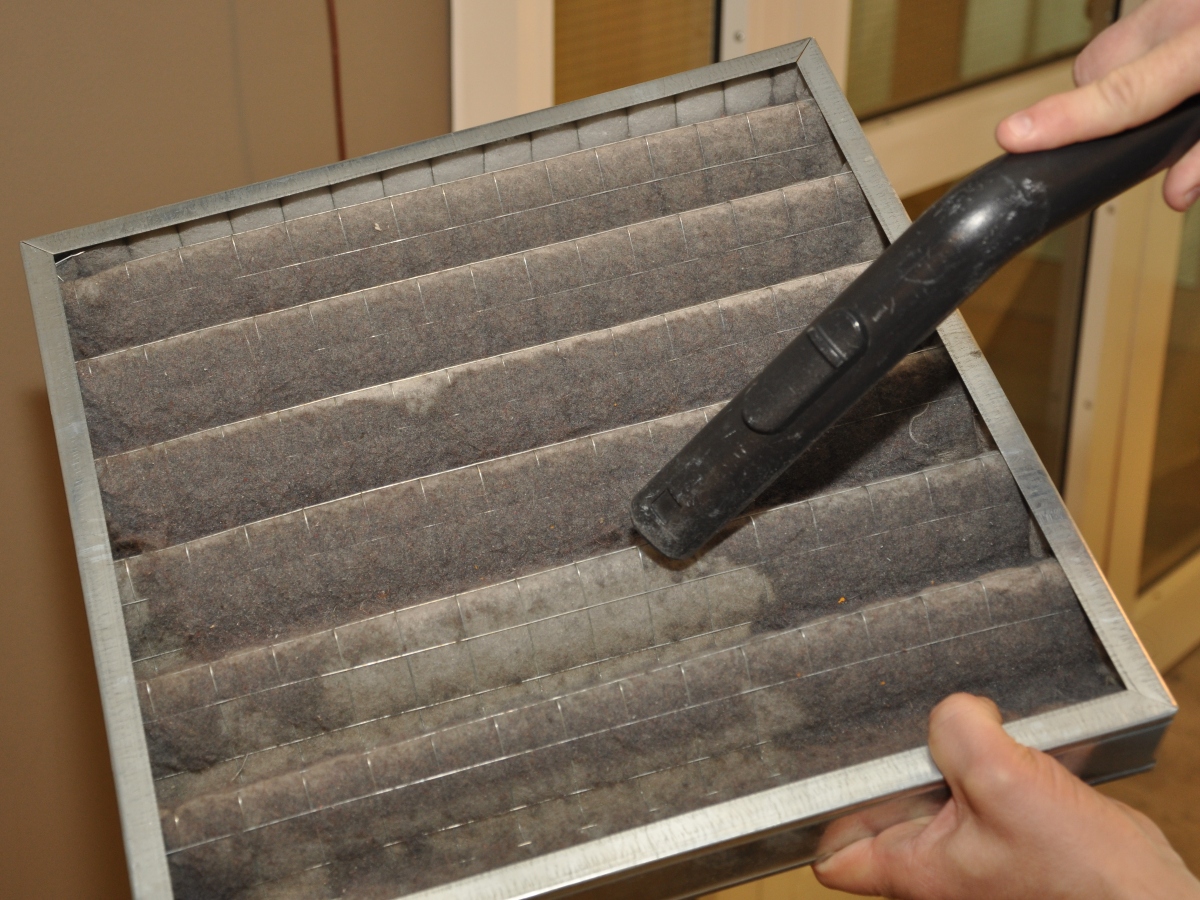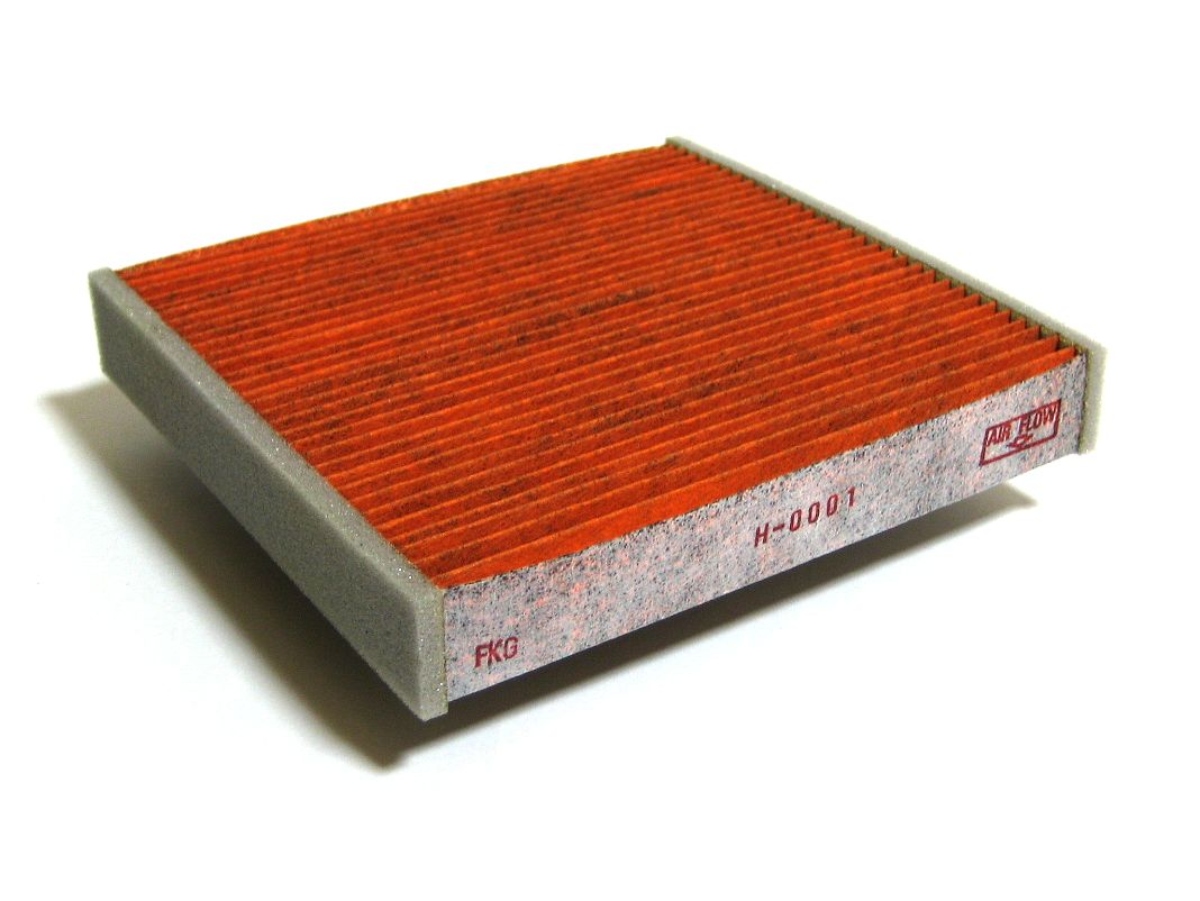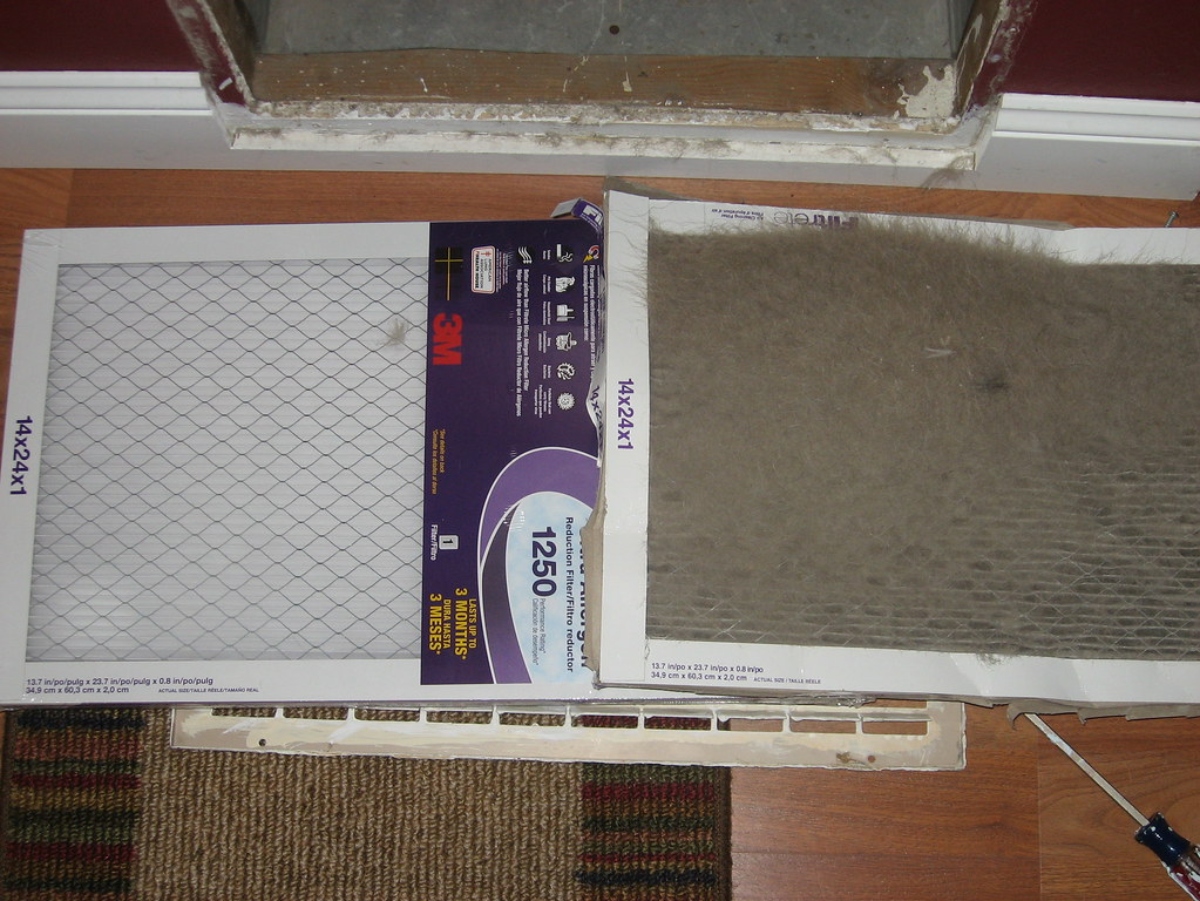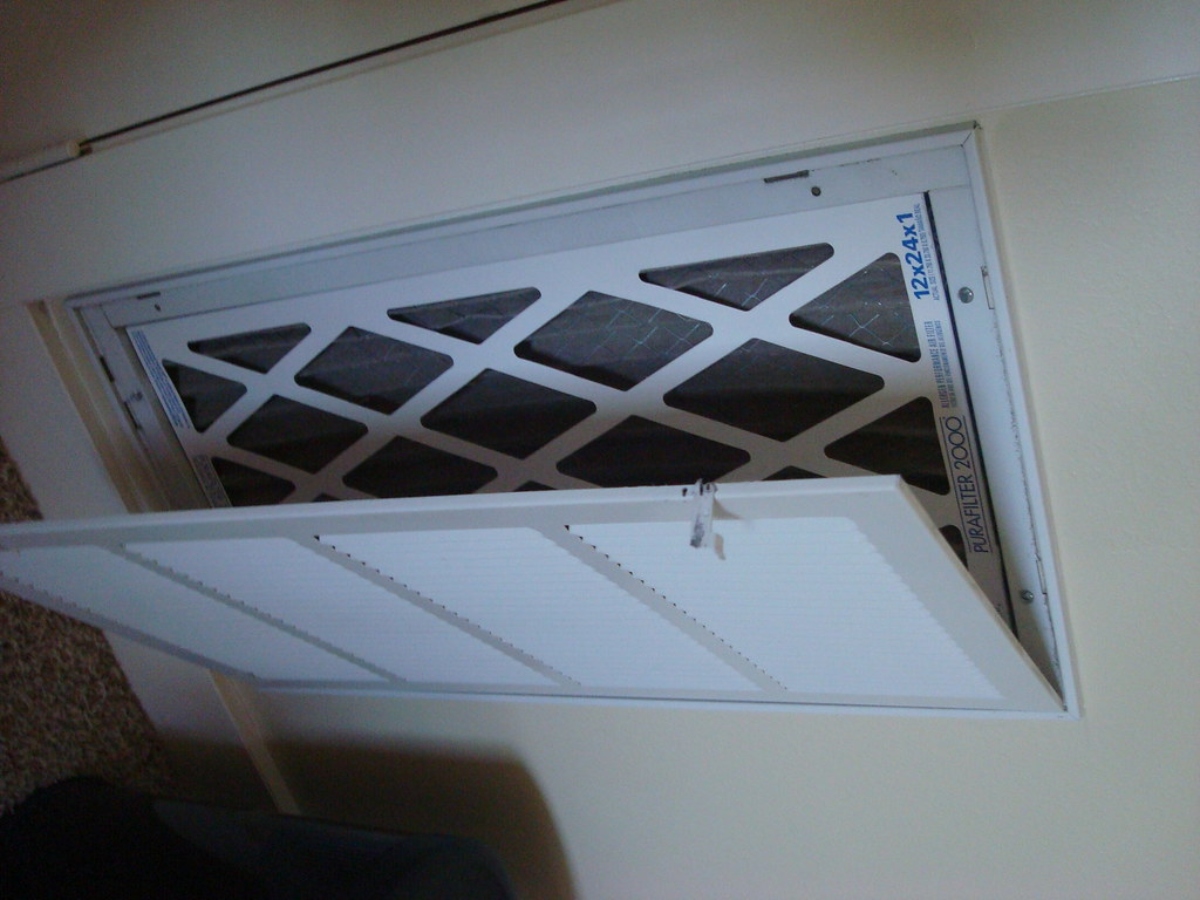Maintaining a property requires inspections and repairs to prevent major breakdowns and expensive replacement jobs. Knowing how to clean your AC filter and how often to do so can help you to better maintain the appliances and utilities in your home year-round.
What is an AC Filter? What Does an AC Filter Do?
An AC filter, or an air conditioning filter, is a filter that works to remove allergens and particles from entering the air. Air conditioners generate these particles. Particles and pollutants lead to lower air quality in the home. Air filters prevent pollutants and allergens from spreading in the air. This works especially well when pollutants enter the home from outside. This is also especially important for those living in areas with more pollution.
An AC filter uses thin fiberglass in order to filter potentially dangerous particles. This is why it is imperative to take extra precautions whenever working with the material. AC filters use a fiberglass thread that wraps around various frames made of cardboard or metal that make up the AC filter itself.
Finding the proper AC filter depends on the actual AC filter manufacturer and/or producers. Not all AC filters work the same. This is why it is important to determine which AC filter you need for your specific AC unit and model.
What Does an AC Filter Protect Against?
AC filters on the market today protect against the following:
- Mold
- Dust
- Exterior pollutants
- Pollen
- Dander and/or fur from indoor pets
- Dead skin

Why is it Important to Have an AC Filter?
Using an AC filter can significantly improve the air quality throughout your home or place of business. Without an AC filter, you are not only exposing yourself to excess pollutants and allergens, but you will also be putting more strain on your air conditioning unit. Less stress on an AC unit and its filter results in a longer lifespan for the air conditioning unit. Without an air filter, a home is much more at risk of poor air quality. Poor air quality can lead to health problems, such as asthma, and even inflamed respiratory tracts.
How Often Do You Replace an AC Filter?
Replacing an AC filter regularly will help to ensure the quality and efficiency of your AC unit. Knowing how to clean AC filter regularly comes in handy. However, if you are new to managing your own air conditioner or AC unit, you may be unsure of how frequently you should replace your AC filter.
Most manufacturers recommend replacing your AC filter at least once every 1 to 2 months during the summer season or the season in which you run your air conditioner. It is important to note that changing your AC filter will depend on how often you run your AC unit and how intensely the unit running at all times. Typically, air filters have a ranking on the MERV scale, determining the efficiency reporting value of the filter itself. The higher the ranking on the MERV scale (which ranges between 1 and 20), the more efficient the air filter.
When an air conditioner is being run consistently in the summer, it is advisable to clean the filter once a month or once every two months to minimize dust buildup and to ensure your unit’s efficiency. For those who are thinking of cleaning the window of the AC filter, this process should occur at least once every six months for optimal preservation. When you know how to clean AC filter, you are less likely to run into trouble down the line.

Factors That Contribute to the Need for AC Filter Maintenance
- Outdoor environment: Living in an industrial zone requires frequent AC filter changes. When living in a rural area, in a location such as a farmhouse, you are less likely to face the same amount of pollutants.
- Surrounding roads: If you live in an area with heavy traffic, change your AC filter regularly. Learn how to clean AC filter to prevent dust and dirt buildup.
- Pets: If you are a pet owner, changing your AC filters regularly is a must, even if you are not allergic to animals. Pet dander and hair build up on AC filters, which can clog them and reduce their efficiency.
- Smoking: For smokers, changing AC filters at least once a month is essential. This is especially important during the off-season months for your air conditioner. Smoking in the home causes dust accumulation and reduces an air conditioner’s efficiency.
How to Replace Your AC Filter (Step-by-Step Guide)
When replacing your AC filter, refer to your AC unit manufacturing manual or user guide. Use your unit’s manual to follow the step-by-step process to find and install your filter. With most AC units it is possible to change your own filter by completing the following steps:
- Turn off the power: Power down your AC unit before attempting to inspect it. Turn off your filter and, if you feel more comfortable, unplug the unit from any electrical outlet.
- Determine the AC filter’s location: Most AC filters are easy to spot behind a unit’s return vent. If you are unsure of the location of your AC unit’s filter, refer to the official user guide.
- Unscrew the unit: Unscrew the vent cover of your AC unit. This will allow you access to your air conditioner’s filter.
- Slide the AC filter out: Slide the AC filter out without pulling too hard or tearing at the filter’s fabric. If your AC filter is in its place properly, it should slide out smoothly and without problems.
- Inspect and clean: Take the time to inspect your AC filter. This is the time to remove visible dirt and dust that has built up in the filter. Use a handheld vacuum or duster to assist. For more intensive cleaning, use warm water or a running shower head to wash the AC filter. Use the shower head and/or warm water to give the AC filter a deep cleaning.
- Allow your filter to dry: Allow your filter to dry before placing it back in its proper place inside the AC unit. This is important if you choose to use a water bath, shower head, or a submerging bath to wash your AC filter. Do not use your air conditioner until your air filter is back in its proper place.
- Replace disposable filters: Using disposable filters is even easier if you own an AC unit. If your air conditioner uses disposable filters, swap them within seconds. This eliminates the need for extra washing or scrubbing.
Important Information Homeowners Should Know About AC Filters
As a homeowner, familiarizing yourself with AC filters and the proper maintenance of your air conditioner is essential. Knowing how to maintain your AC unit minimizes risks and costs as a homeowner. Learning how to clean AC filter saves time and ultimately, money. Keeping your AC filters clean at all times also helps to extend the lifespan of your unit.
Cleaning and replacing AC filters helps save time while maintaining one’s home. Maintaining AC filters is a way to keep a unit running without issues year-round. There are a few things to keep in mind when it comes to managing AC filters in your home, such as:
- Clean filters result in higher air quality: Improve the air quality in your home with new air filters. Cleaner air results in fewer pollutants and allergens. This results in fewer sinus issues and bacteria buildup in the home.
- Filter pollution: AC filters reduce the buildup of pollution in a home and outside of it. This pollution is from outdoor environmental factors.
- Maintain desired temperature: Maintain a set temperature with clean AC filters. Dirty, dusty, or clogged AC filters lead to a disruption in your home’s ability to maintain any set temperature.
- AC filters help extend unit lifespan: Extend the lifespan of your air conditioning unit with proper AC filter maintenance. This will reduce the need for replacements and repairs over time. When you are confident in your ability to clean your AC filter, maintain peace of mind as a homeowner.



